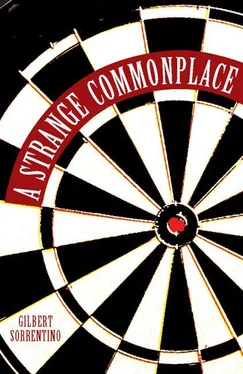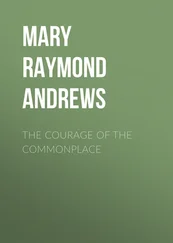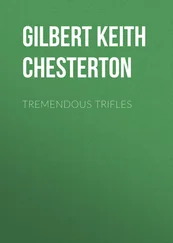HAL IS DESTINED TO BECOME A RICH AND FAMOUS writer; this is known by the fact that he carries a Great Book through the Mean Streets of his grim neighborhood, even into the corner candy store and the poolroom, and despite the mockery and bullying of the ne’er-do-wells among whom circumstances have placed him. Here among the decaying tenements of the Slums, his worn and thinly smiling Mother, constantly drying her hands on her coarse apron, save when she is patting her severe bun into place, knows that her Yossel will be a Great Success some day. She looks very much like Ann Revere or Dorothy Adams, although her name is Sarah. Yes, he will make her proud one day, with his good grades and deep love of Education, even though she worries, at times, about his fascination with baseball. “Eat, eat, my darling,” she says, setting a steaming plate of Hearty Ethnic Food before him as he sits at the oilcloth-covered table, immersed in a thick book of philosophical Ideas or great Poetry. He wouldn’t be here all his life, no, he’ll be rich and set Ma up in a swell apartment off the Park. It’s too late for Papa, of course, dead of galloping consumption after long years in the Factory downtown. There is, however, a Siren in his future, soon to arrive, Monica, a sensuous, depraved, shallow, diabolical woman who wears nothing but evening gowns out of which her snowy bosom yearns to emerge. She will, at the moment of his Explosive Appearance on the Literary Stage with his first novel, Let No Man Judge My Anger, drive him mad with an Unlawful Passion and lure him away from sweet Peggy, his blond American Wife, who resembles June Allyson, dear, faithful, patient Peggy in her ruffled apron, bent, more often than not, modestly, of course, over an oven out of which come those pies that even Ma has to praise, and does, for she has come to love Peggy as the woman her beloved Yossel has chosen. His rich and spoiled enamorata, a dead ringer for Gail Patrick, has, although only twenty-five, seduced, toyed with, weakened, betrayed, and finally destroyed, a jazz trumpeter, a playwright, two scientists, a bullfighter, a second baseman, and a professor. Her father, Charles “Big Cholly” Cunningham, who is always flattered to hear himself described as an Edward Arnold look-alike, is highly amused by his daughter’s vile depravity, as befits the heartless Tycoon, the Boss of Cunningham Mining, and the owner of West Virginia and most of Kentucky. “Another fly in your web, Monica?” he’d roar. “Ha ha ha! See that it doesn’t cost me too much this time, my dear!” Hal has almost stopped writing, for his days are a Mad Whirl of polo, croquet, riding to hounds, fast cars, and brandy, his nights a Dizzy Kaleidoscope of fine restaurants, night clubs, hot jazz, and champagne, and he has almost forgotten that he is really Yossel from the Slums. His Ma, settled in the beautiful apartment off the Park that he promised her so many years ago, richly dressed, resplendent in pearls and diamonds, and splendidly coiffed, is not, certainly, Happy, and longs for her cramped little kitchen in the Tenement, longs for her coal stove, her coarse apron, her groats and flanken. She has no idea what has come over Yossel, and his angry outbursts when he visits to find her on her hands and knees scrubbing the floor in her evening gown, shock her into tears. He cannot understand her when she quaveringly suggests that the apartment is too big for her, or when she complains that the maid, Annette, is snooty and intrusive. He also spurns the good advice of his publisher, the suave and sophisticated Carruthers Astor, a brilliant yet down-to-earth gentleman with a rich voice and lustrous silver hair, a man much like Otto Kruger, who warns him that it is time to stop carousing with that playgirl and get back to work on his second novel, to be entitled A Wilderness of Tears, “before the critics and the public forget you, my boy.” Yet Monica’s corrupt beauty leads him to ignore Everything, her smoldering fascination tempts him over and over again to shameful, unutterable weakness, her eyes and hair, limbs and lips and sophisticated accent bewitch him. And so now he finds himself, always, among her frivolous, rich friends, young men and women who know nothing of Lou Gehrig and Schopenhauer and roasting mickeys in the corner lot. And in the smoke and brittle laughter of nightclub and cabaret and jazz joint, his pen is stilled. Peggy weeps silently night after night, gazing at the untouched table setting and his unmussed bed in the beautiful suburban mansion that seemed, once, to portend Happiness for them. One night, when a weak-chinned and pencil-mustached drunk at the bar of El Congo, remarks that it looks as if the boy genius’s first book will be his last, Hal slugs him and is thrown into the street by the nightclub’s bouncer. Lying in the gutter in the rain, he sees Ma’s face, her eyes filled with tears. Monica, soon after, during a bitter quarrel about his refusal to wear jodhpurs to her father’s annual Spring Hunt, spits out, “You’re nothing but a one-trick pony. Ricky was right.” She throws her sable over her shoulders and laughs. “A cheap vulgar drunk from the streets! Good-bye!” Hal is left alone in the penthouse apartment in which their Unlawful Passion began. Hours later, the telephone rings, waking him from his brandy stupor. It’s Peggy, and she tells him, sobbing, that their beautiful Scotty is dying of a Dread Disease that has no name, not, at least, one that the doctors wish to utter. She is in the Finest Hospital in The City, and the Greatest Specialist in The Country is at their darling’s bedside, and yet…. Dr. Charles Trowbridge and his colleague, Dr. Samuel S. Hines, stand in the shadows of the gleaming hospital room, stroking their chins, while a sturdy nurse, holding a white-enamel basin half-filled with a nameless liquid, stands somberly behind them. “It’s out of our hands now,” Dr. Hines says. “We can,” says Dr. Trowbridge, looking at his watch, “only pray.” Hal stands at the bedside, looking down at his angel’s sweaty face, and touches one of her curls, while cold rain lashes at the dark windows. Peggy is beside him, groping for his nerveless hand, while tears gleam in her eyes, and Ma is speaking softly to Heaven in the guttural syllables of her native tongue. The hands of the wall clock turn with astonishing rapidity and suddenly stop. It is 8:00 A.M., and in the silence of the room, Hal and Peggy hear, “Mommy, Mommy, I’m sursty.” The adorable Scotty, as pretty as Connie Marshall, and just as cute, is smiling weakly. Dr. Trowbridge hastens to the bedside and places his stethoscope on her chest. “The fever has Broken,” he says. “She’s going to be Fine, just Fine.” Sunlight floods the room and the nurse bustles about, doing things, while birds sing on the windowsill. “Thank you, God,” Ma says, while she and Peggy and Hal hug each other. Soon the leaves are falling and Hal is at his desk in the little study in the cabin that they’ve bought in the Pine Woods. He sits at his typewriter, and, smiling, types PERMIT HER MERCY, Chapter One. Peggy enters with a tray on which there is a sandwich on home-baked bread, an apple, and a glass of milk. “No apple pie today, honey?” he says, and they kiss. Outside, Scotty runs and tumbles with Lobo, her collie puppy, while Ma sits under an old elm tree, her knitting forgotten in her lap. “Is it really true, darling,” Peggy says, “about the Pulitzer Prize? Really, really true?” Her eyes are shining with pride as she dries her hands on her ruffled apron and tosses her blond hair. Hal wipes a smudge of flour off her pert nose. The postman arrives at the gate and calls out, “Letter from New York, Hal. Looks important!” Hal squeezes Peggy’s hand and rises. In the soft light of the study he looks almost like John Garfield.
Читать дальше











